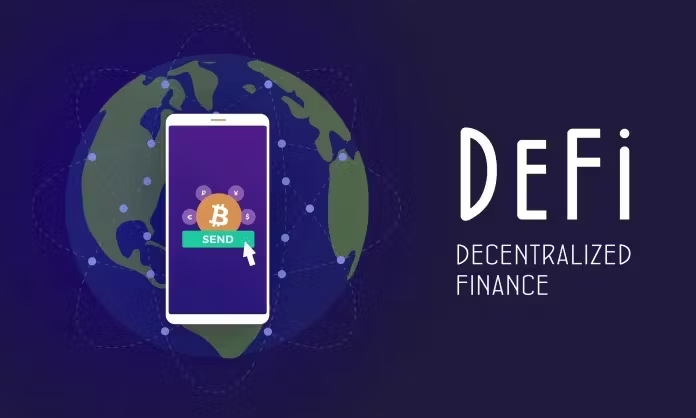
Impact of NFTs on Online Marketplaces and E-commerce
In recent years, non-fungible tokens (NFTs) have gained immense popularity as a unique form of digital asset that can be bought, sold, and traded on various online platforms. With their ability to represent ownership of digital art, music, videos, and other creative works, NFTs have taken the online marketplaces and e-commerce world by storm. In this article, we will explore the impact of NFTs on online marketplaces and e-commerce.
What are NFTs?
Before diving into the impact of non-fungible tokens on online marketplaces and e-commerce, let’s first understand what NFTs are. NFTs are digital assets stored on a blockchain that is unique and non-interchangeable. This means that each NFT represents a one-of-a-kind item, and the ownership of each NFT can be verified through the blockchain. non-fungible tokens can represent any digital asset, including art, music, videos, tweets, and virtual real estate.
How do NFTs Work?
NFTs are created using a smart contract on a blockchain, usually the Ethereum blockchain. The smart contract contains information about the digital asset and its ownership. When an NFT is purchased, the ownership of the digital asset is transferred to the buyer, and the smart contract is updated to reflect the new ownership.
Impact of NFTs on Online Marketplaces
Online marketplaces such as eBay, Amazon, and Etsy have been around for many years and have revolutionized the way people buy and sell goods online. With the advent of non-fungible tokens, online marketplaces have the potential to expand their offerings and create new revenue streams. Here are some ways non-fungible tokens are impacting online marketplaces:
1. Unique and high-value items
NFTs represent unique and high-value items that can’t be replicated. Online marketplaces can use non-fungible tokens to offer exclusive and rare digital assets that can’t be found anywhere else. This creates a new market for collectors and enthusiasts who are willing to pay a premium for these items.
2. Verification of ownership
NFTs use blockchain technology to verify ownership of digital assets. This makes it easier for online marketplaces to track ownership and prevent fraud. Buyers can be assured that the NFT they are purchasing represents an authentic digital asset.
3. New revenue streams
Online marketplaces can earn a commission on the sale of non-fungible tokens, creating a new revenue stream. This can be especially lucrative for online marketplaces that specialize in digital assets, such as art or music.
Impact of NFTs on E-Commerce
E-commerce has grown tremendously in recent years, with more and more people shopping online for goods and services. NFTs have the potential to revolutionize e-commerce by offering unique and digital products that can’t be found anywhere else. Here are some ways non-fungible tokens are impacting e-commerce:
1. Unique and personalized products
NFTs can be used to create unique and personalized products that are tailored to each buyer. For example, a music artist can create an NFT that represents a personalized song for each buyer. This creates a new market for personalized products that can’t be found anywhere else.
2. Brand loyalty
NFTs can be used to create brand loyalty by offering exclusive digital products to loyal customers. This can help e-commerce companies retain customers and increase their lifetime value.
3. Improved customer engagement
NFTs can improve customer engagement by offering interactive and immersive digital products. For example, a fashion brand can create an NFT that represents a virtual fashion show where customers can interact with the clothes and accessories.
Potential Drawbacks of NFTs
While non-fungible tokens offer many benefits to online marketplaces and e-commerce companies, there are also potential drawbacks to consider. One of the main concerns is the environmental impact of non-fungible tokens.
The creation of NFTs requires significant energy, as they are created using blockchain technology. This has led to criticism that NFTs are contributing to climate change and are not environmentally sustainable.
Another concern is the potential for fraud in the NFT market. While blockchain technology is designed to prevent fraud, there have been instances of fake NFTs being sold online. This highlights the need for online marketplaces and e-commerce companies to be vigilant in verifying the authenticity of NFTs before they are sold.
Future of NFTs
Despite the potential drawbacks, the future of NFTs looks bright. As more and more people become aware of the potential of NFTs, we can expect to see continued innovation and growth in this space.
The gaming industry is one area where NFTs are expected to have a major impact. NFTs can represent in-game items, such as weapons or skins, which players can buy, sell, and trade. This creates a new market for gaming enthusiasts and offers new revenue streams for game developers.
NFTs also have the potential to revolutionize the way we think about ownership and intellectual property. As more and more creative works are created in digital formats, non-fungible tokens offer a way to represent ownership of these works and to ensure that creators are fairly compensated for their efforts.
Conclusion
Overall, non-fungible tokens have significantly impacted online marketplaces and e-commerce, offering new opportunities for growth and innovation. While there are potential drawbacks to consider, the future of non-fungible tokens looks bright, with continued growth and innovation expected in the coming years.
Whether you are an online marketplace, an e-commerce company, or simply a collector or enthusiast, non-fungible tokens offer a unique and exciting opportunity to tap into the growing market for digital assets.
So, if you haven’t already started exploring the world of non-fungible tokens, now is the time to get started. With so much potential and possibility, the impact of non-fungible tokens on online marketplaces and e-commerce is only beginning to be felt.


